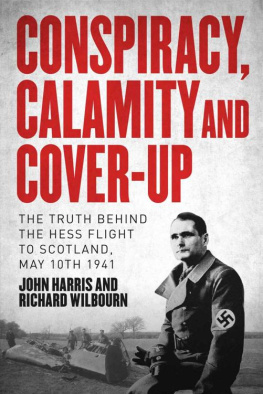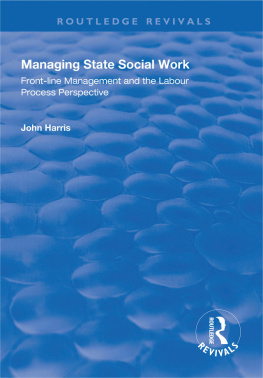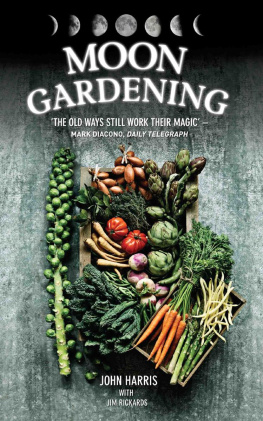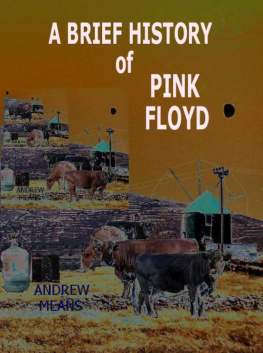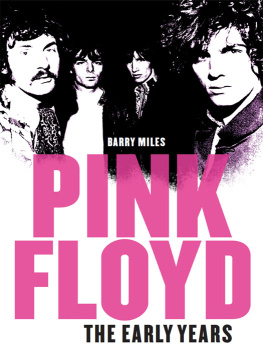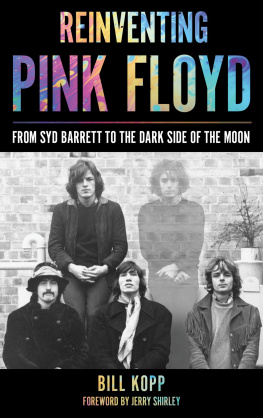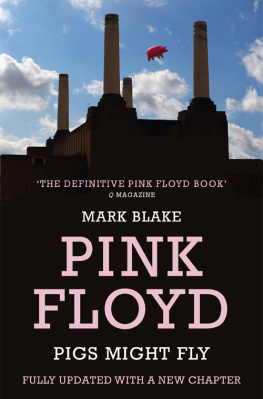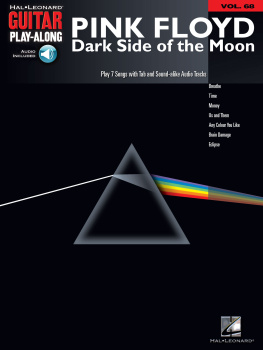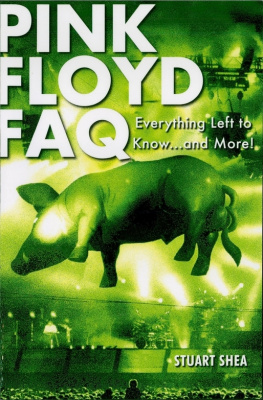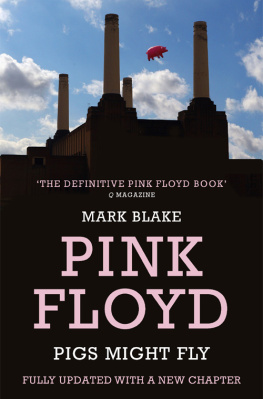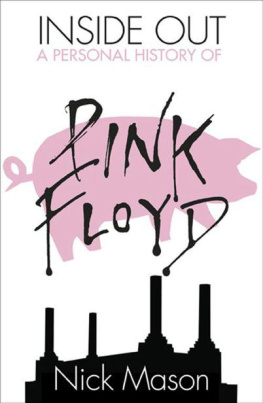JOHN HARRIS is the author of The Last Party: Britpop, Blair and the Demise of English Rock and So Now Who Do We Vote For? As well as contributing to Mojo and the New Statesman, he writes for the Guardian and is a regular panellist on BBC2s Newsnight Review. Visit his website at www.johnharris.me.uk

Australia
HarperCollins Publishers (Australia) Pty. Ltd.
Level 13, 201 Elizabeth Street
Sydney, NSW 2000, Australia
http://www.harpercollins.com.au
Canada
HarperCollins Canada
2 Bloor Street East 20th Floor
Toronto, ON, M4W 1A8, Canada
http://www.harpercollins.ca
New Zealand
HarperCollins Publishers (New Zealand) Limited
P.O. Box 1
Auckland, New Zealand
http://www.harpercollins.co.nz
United Kingdom
HarperCollins Publishers Ltd.
1 London Bridge Street
London SE1 9GF, UK
http://www.harpercollins.co.uk
United States
HarperCollins Publishers Inc.
195 Broadway
New York, NY 10007
http://www.harpercollins.com
Massive thanks go to Ben Schafer at Da Capo Press, a great editor, sounding board, and Floyd expert whose patience, graciousness, and expertise merit a heartfelt salute. I am also grateful to Jason Fine at Rolling Stone, whose commission of a Dark Side article in January 2003 was the seed from which the book sprang; my US agent, Sarah Lazin, and Hannah Griffiths, whose initial input got things on the right track; and Nick Davies, ex of Fourth Estate and now at Hodder. Awestruck thanks go to Storm Thorgeson for his design of the cover and Im particularly indebted to Emily Hedges for the brilliant picture research that took the book into a completely different dimension.
Thanks also to the following: Ian Harrison at Mojo and Merope Mills at The Guardian, for two fantastically useful commissions; the staff of Q and Mojo, for their hospitality and help with back issues; Tom Sutherland of Toms Records of Hay on Wye (www.tomsrecords.com); Marina Rendle; Kay Garner; Andy Mabbett, Allan Rouse, my Mum and Dad; Phyl and Paul Mighall; Karl Rhys, whose warnings about elephants were timely but mercifully ill-founded; and Steve Lowe. Huge gratitude, as ever, goes to Hywel Harris, for his friendship, inspiration, and inestimable web design, of which I am only one of many beneficiaries (for details, visit www.hywel.biz).
My greatest appreciation, however, is for Ginny Luckhurst, to whose love, grace, and patience words dont really do justice.
John Harris, Hay on Wye, March 2005
David Gilmour remained a working member of Pink Floyd for twenty-one years after the release of The Dark Side of the Moon, though that period saw two lengthy breaks: from 1983 to 1986, as Roger Waterss role within the band drew to a close and Gilmour finally launched the third incarnation of the group; and from 1989 to 1993, from the end of touring around A Momentary Lapse of Reason to the start of work on The Division Bell. After the Floyd were put on indefinite hold in 1994, Gilmour kept a low profile, making the odd guest appearance he contributed, for example, to Paul McCartneys 1999 covers album Run Devil Run but deciding not to add to a small solo catalogue whose last entry was About Face, released in 1984. His last commercial release was a DVD entitled David Gilmour in Concert, released in 2002, on which he performed such Pink Floyd songs as Shine On You Crazy Diamond, Comfortably Numb, and Fat Old Sun, the Syd Barrett original Terrapin, and Hushabye Mountain from the film Chitty Chitty Bang Bang. Against not inconsiderable odds, he announced in the summer of 2005 that he would reunite with Roger Waters for Pink Floyds appearance at Live 8.
Nick Mason maintained his role as Pink Floyds drummer until 1994, though the success of The Dark Side of the Moon had allowed him to pursue an interest in motor sport that eventually took precedence over his musical activities. He rekindled his friendship with Roger Waters after an accidental meeting in the summer of 2002, in the wake of which he made a guest appearance at a Waters solo show in London, adding drums to a rendition of Set the Controls for the Heart of the Sun. He published Inside Out: A Personal History of Pink Floyd, in September 2004. While promoting the book, he was asked about the chances of a Pink Floyd reunion including Gilmour and Waters. The only way it would happen, he said, would be another thing like Live Aid, where youd say, This is more important than any differences, and well do something wonderful. Its not logically impossible. But youd have to talk to the others. Ive always been an optimist. Less than a year later, his hopes were realised when the four members of Pink Floyd Mk II agreed to appear together at Live 8.
Roger Waters served notice of the end of Pink Floyd in October 1986, with a legal suit claiming that the band should be allowed to retire gracefully. Much to his annoyance, David Gilmour then revived the band Im not sure how theyre going to manage, considering I was the only one who would ever do anything for about the last fifteen years, he said leaving Waters to pursue the solo career that had begun with The Pros and Cons of Hitch Hiking (1984). It also resulted in Radio K.A.O.S. (1987), Amused to Death (1992), and a live album entitled In the Flesh (2000). In 1990, he staged an all-star production of The Wall in Berlin, aimed at making money for the Memorial Fund for Disaster Relief, a charity pledged to raise five pounds for every life lost in the wars of the twentieth century. At the time of writing, he was involved in two projects that had been ongoing for several years: an opera centred on the French revolution entitled a Ira (Well Make It) and a Broadway version of The Wall. I dont think there should necessarily be a separation from the records I made with Pink Floyd and the work Ive done since, he says. Thats the voice that ran through those years, and that voice has continued. Waterss agreement to rejoin Gilmour, Mason and Rick Wright at Live 8 was couched in terms of a temporary reunion: a statement released to the press talked of an opportunity to put the band back together, even if its only for a few numbers.
Rick Wright was perhaps the most evident casualty of Roger Waterss increasing dominance of Pink Floyd. When he started developing his ego trips, Wright later claimed, the person he would have his conflicts with would be me. Though Waters dismissed him from the band during the recording of The Wall, Wright was paid a wage to return for the projects concert performances. In a similarly semi-detached capacity, he played keyboards with Gilmours incarnation of Pink Floyd, until being reinstated as a full member prior to the recording of The Division Bell. He released his second solo album, Broken China, in 1996 and quietly entered a period of effective retirement, broken only by Pink Floyds appearance at Live 8. In the eyes of some of the groups associates, his contribution to the band has long been overlooked; in the view of Peter Jenner, for example, Wright is the great unsung hero of the Floyd.
Syd Barrett lives in Cambridge. In the wake of his departure from Pink Floyd, he recorded two albums The Madcap Laughs and Barrett partly assisted by Roger Waters, David Gilmour and Rick Wright, before his musical activities became sporadic and eventually ended. His last meeting with all three of his ex-colleagues took place in June 1975, when he unexpectedly paid a visit to Abbey Road during the recording of


